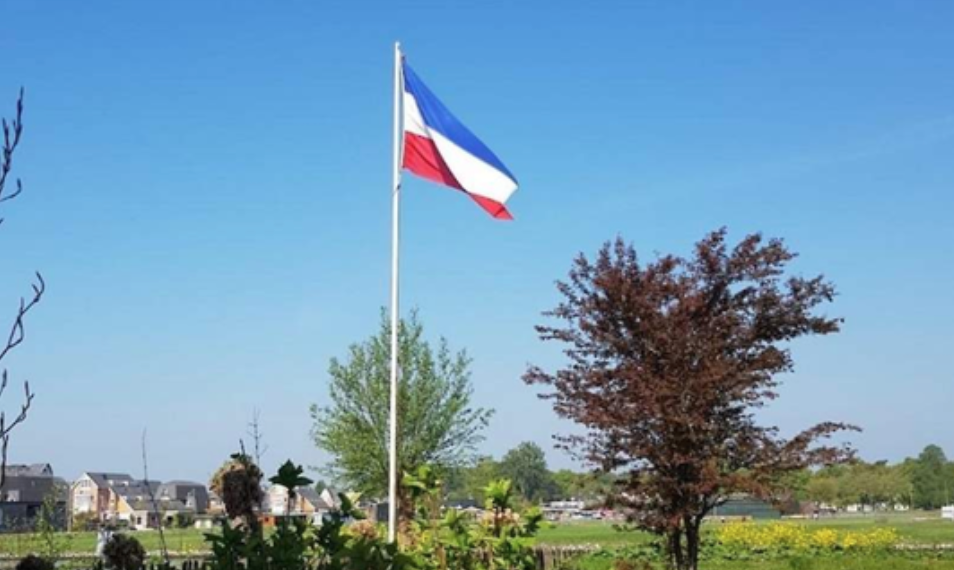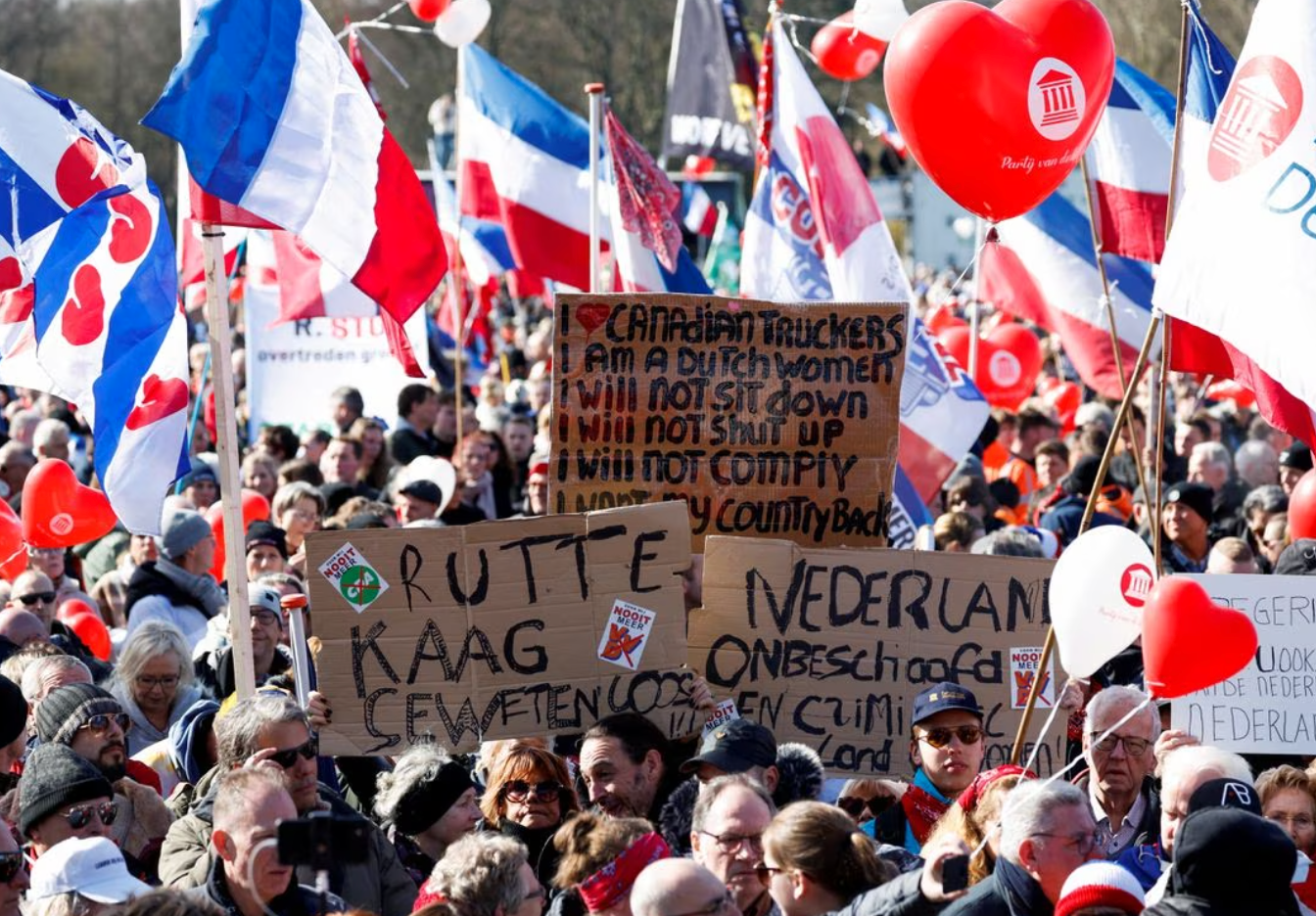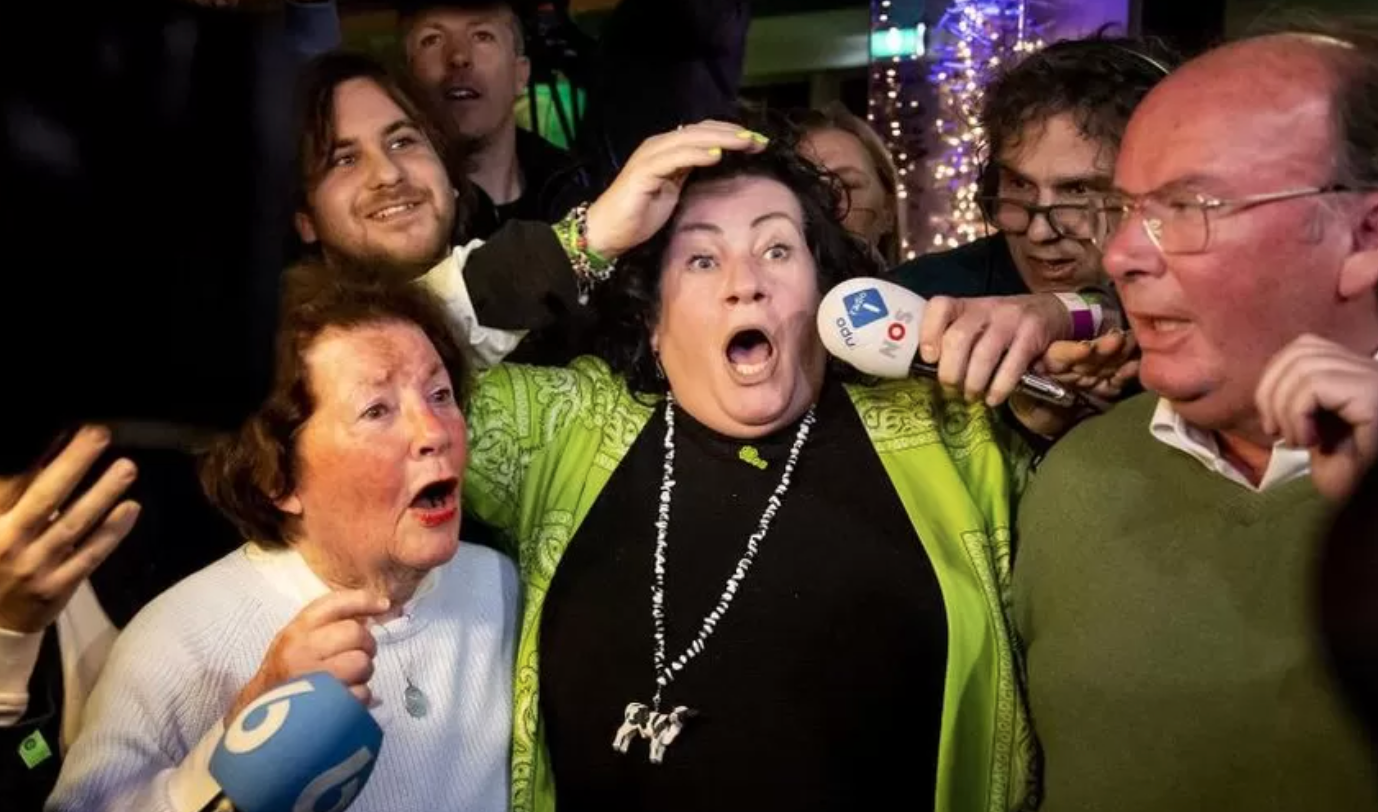‘On the 15th of March, citizens of the Netherlands went to the ballot boxes for the provincial elections, handing an overwhelming victory to a political newcomer, the Farmer-Citizen Movement (BBB), led by Caroline van der Plas. What is in essence a one-issue party, BBB is staunchly against the government’s agricultural policy. The party was founded in 2019 by a former pig farming lobbyist and a communication agency, and surprised at the previous national election, entering the lower house with one seat. As such, it lobbies extensively for the agricultural industry, which tends to take away from some of its other, more unorthodox, political positions. For example, one of their positions for the national elections in 2021 (since removed from their manifesto) stipulated that all schools of journalism would have to make it compulsory for students to follow subjects on the agricultural and rural sector. BBB has been described by van der Plas as ‘just to the right of centre’, while commentators argue that BBB is a right-wing populist party.
The elections, held every four years, pick representatives in each of the 12 Dutch provinces, forming a provincial parliament. Provincial representatives are responsible for making structural plans concerning spatial and physical planning. Although life in the provincial parliament may sound like a bureaucratic dystopia, it is massively important when it comes to the Dutch strategy to tackle climate change. All plans for new industrial areas, agricultural operations and nature reserves are decided at provincial level, and the provincial parliament functions as a wathdog for compliance with climate laws concerning air, soil, and water quality. Additionally, those elected at provincial level form an electoral college which chooses members of the Senate, which is the upper house of the Dutch ‘States-General’. Before the lower house can pass an act into law, it needs to be voted on in the upper house, and its implementation is contingent on the provincial parliament. Seeing as the BBB will be the biggest party in the Senate (with 17 out of 75 projected seats) and has become the biggest party in each of the 12 provinces, implementing meaningful change in terms of a much-needed reduction of nitrogen emissions is looking increasingly arduous.
‘Commentators argue BBB is a populist party.’
The Netherlands is the world’s second biggest agricultural exporter, Europe’s biggest meat exporter and has the highest density of livestock in the EU, yielding around 100 million chickens, 11 million pigs and 4 million cows a year. Despite being one of the most densely populated countries in Europe, more than half of the surface area of the Netherlands is used for agricultural purposes. After years of postponing, the current coalition government put forward a set of laws aimed at limiting the emission of nitrogen gas, primarily focused on the buying out of the largest emitters of nitrogen in their area. The government’s declaration in 2019 of an intention to scale down the agriculture industry was met with fierce protest. Ranging from the occupation of public areas with as many as 2200 tractors, to blockading highways with hay, farmers from around the country voiced their discontent with the policy. Despite farmers’ concerns, the government put out a plan at the end of 2022 to help the biggest emitters of nitrogen gas to reduce their impact on the environment, aiming to halve nitrogen emissions by 2030. BBB’s stance on the issue is one of opposition, arguing for fewer rules and more input from farmers. One of the more emotive arguments against the policy, often purported in talk shows and on social media, is that in buying out the biggest emitters, the government is expropriating land unfairly, and robbing rural citizens of the opportunity to follow their passion. This opinion is not just held by farmers, as polling has showed that many voters feel the policy is yet another example of big-city politicians not listening to the wants and needs of those outside the ‘Randstad’ (a Western area of the country containing its four biggest cities), and eradicating a traditional way of life.

Farmers’ worries about losing their way of life are understandable, particularly when these measures come after years of Rutte’s government using the issue as a political football. As of 2017, one in five millionaires in the Netherlands was active in the agricultural sector. Just as is rife in regular society, however, income from agriculture is not distributed evenly. Small-scale farming operations have been systematically bought out by private investors or agricultural conglomerates, limiting the opportunity for farmers to engage in traditional, sustainable farming. A harsh reality for Dutch farmers is the lack of work opportunity and revenue potential they face. The number of farms in the Netherlands has gone down from 145,000 in 1980 to 52,000 in 2021, mainly because of the impracticality of running a small, sustainable farm in today’s profit-hungry agricultural industry. Naturally, a vote for BBB will have seemed like a plea to the government to make farming more lucrative but maintaining the agricultural status quo in the country is likely to do the opposite. Between 2000 and 2020, the amount of independent farming businesses in the Netherlands has gone down by 50%, a trend that would continue if the government were to stick to a laissez-faire policy, and not act on nitrogen emissions. While harsh, the government’s policy is aimed at creating a more sustainable climate in which farmers can practice their trade for not just this generation, but generations to come.

From data on the election results, about 70% of BBB voters are above 50 years old, and the majority do not hold higher-level education qualifications. Those who voted for parties in support of agricultural and environmental reform are overwhelmingly young and educated, signifying a trend in Dutch public opinion about the way in which the country should deal with climate change. Commentary on why there is such a clear age-based chasm between these voters has touched on the rural-urban divide, ‘winners’ and ‘losers’ of globalisation, and religion versus secularism, but it is evident that there is a generational disagreement on how the Dutch view the urgency of environmental action. In the words of Socialist Party leader Lilian Marijnissen, ‘the Dutch electorate has given a big middle finger to the government’. The crux of the issue is that while a large proportion of the population has clearly voted in protest of the government’s emission reduction plans, they have already been passed into law. The EU is also looking over Rutte’s shoulder, as its member states need to reduce emission levels by 55% before 2030 and are expected to be climate-neutral by 2055. As of 2021, data on Dutch emission levels showed that the goals set in the Paris Climate Agreement were unlikely to be met at the current rate. Minister for Nature and Nitrogen Christianne van der Wal responded to BBB’s victory by arguing that it is not feasible to say ‘we are not going to implement a nitrogen policy while continuing to build houses’. Van der Plas intends to ‘modify’ the current nitrogen policy, but that is both legally and practically improbable. Although the country does face a housing crisis and needs to work on developing sources of energy that are not connected to Russia, it cannot ignore its climate commitments by continuing to emit at this level. Whether BBB’s electorate will accept this inability to change the policy is up in the air, but if the protests seen over the past few years are anything to go by, the Dutch government will face immense pressure at both national and provincial level when it comes to implementing crucial laws.
‘Dutch farmers are worried about losing their way of life.’
Another winner in this election comes in the form of a collaboration between GreenLeft (GL) and the Labour Party (PvdA), who joined forces for the first time in Dutch political history. With 15 projected seats, they give the coalition government, who lost eight seats in the Senate, a vital option in passing legislation, possibly circumventing the need to make deals with BBB. The Prime Minister’s party (VVD) will be regretting their campaign strategy, having largely ignored BBB in the runup to the election, instead hoping a battle with the ‘leftist cloud’ consisting of GL and PvdA would drown out the noise from van der Plas’ campaign. Considering that 17% of voters who had voted for VVD in the national elections in 2021 have now moved to BBB, Dutch political commentators are questioning Rutte’s famed ability to win the hearts of the electorate despite being faced with substantial political issues. The politically diverse coalition government is left to lick its wounds, while those who voted for BBB will feel that there is no way around them, whether the newly implemented climate laws allow it or not.’
Ben Van Broeckhuijsen is a stage three student studying for a BSc (Hons) in Politics and International Relations

